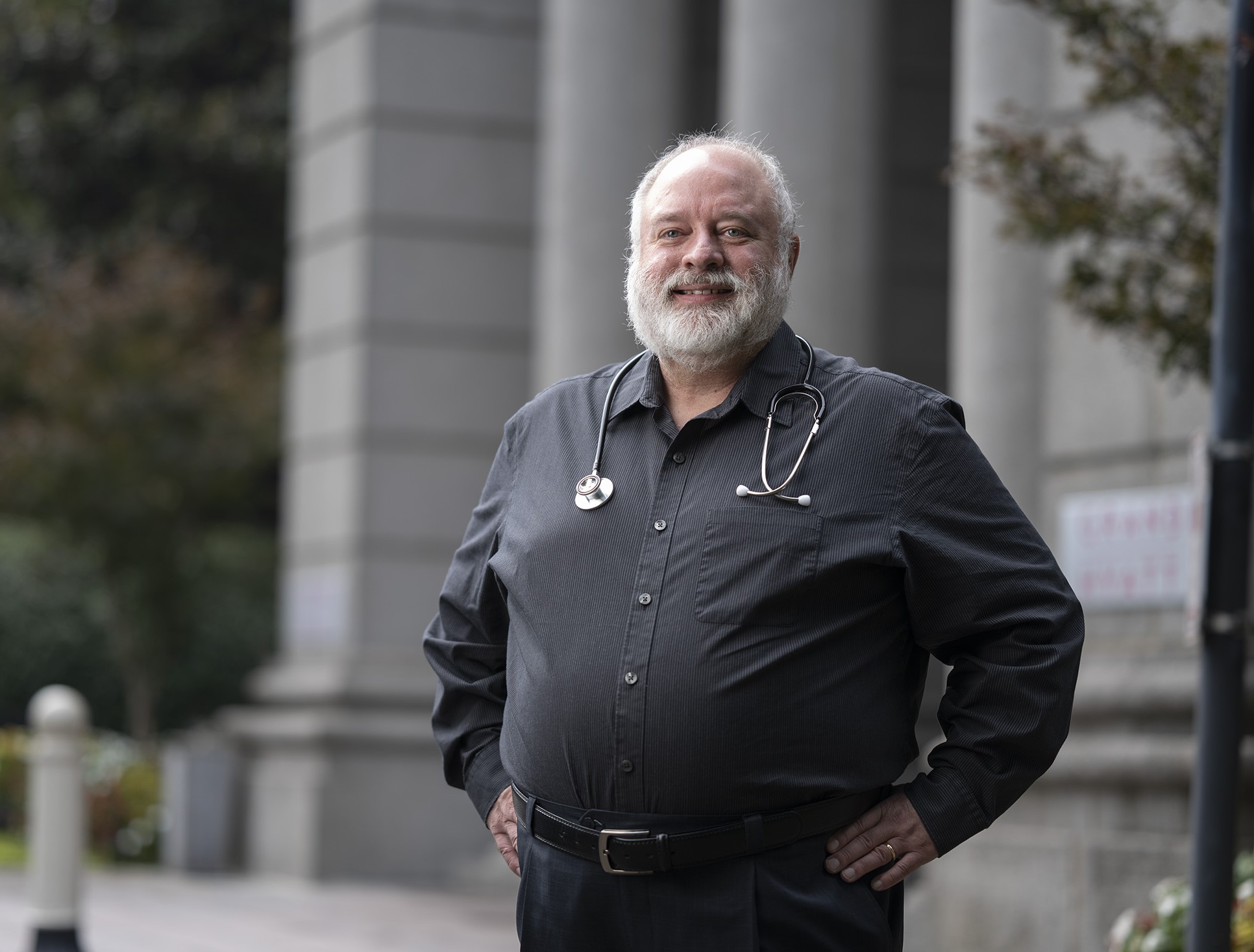For Dr. Doug Fullington — an internal medicine and primary care physician with Catalyst Health Group in Dallas, Texas — excellence in health care has always been synonymous with kind, compassionate human interaction. In our conversation, he shares how the agilon health model has rekindled his love for primary care by opening up precious time and space to truly connect with patients.
agilon health: Physicians come to the agilon health model for many different reasons. What drew you to this partnership?
Dr. Fullington: From the very first conversation, I could see immediately that there was a perfect match in the core values of our two organizations. My priority and my focus as a physician have always been on patient outcomes, keeping the patient at the center of every decision. It was such a blessing to be certain right away that our values were aligned, and to know we’d be rowing the boat in the same direction.
agilon health: It’s clear this is an area of real passion for you.
Dr. Fullington: I believe it would be for any physician. We all went to medical school because we were drawn to helping people and making sure that people – just like our own parents, grandparents, brothers and sisters – had health outcomes that matched their goals. And the wonderful thing is that when you effectively address patient outcomes – when you succeed in helping patients reach their goals – it also helps fix many other problems in the health care system, including controlling costs and reducing physician burnout.
agilon health: Is physician burnout something you’re concerned about?
Dr. Fullington: Of course. People come into this profession because they care deeply about helping patients. Our goal is to relieve suffering. And in a broken health care system, when you feel like you’re prevented from relieving suffering because of financial constraints, it’s very difficult.
When I was growing up, I had asthma. And this was back in the day before there were inhalers or good treatments. I remember going to my primary care doctor at 3 am with an asthma attack. His house was his office and his wife was his nurse. He would open up his house and he would give me a shot of epinephrine and I could just breathe better.
That’s what a primary care physician is meant to be. It’s the person you depend on to make you feel better. And models like agilon that focus on primary care and support that direct, human, physician-patient relationship — that’s what’s going to rekindle our passion for primary care, and that’s what’s going to fix the broken health care system.
agilon health: What is the biggest benefit you’ve experienced since becoming an agilon partner?
Dr. Fullington: agilon has given me back the gift of time with my patients — and that’s probably the greatest gift a physician can receive. Fee-for-service rewards physicians for providing treatments and/or health services for patients. But that’s not the way I want to practice medicine. Don’t pay me for the quantity of services I’m providing. Pay me for taking quality care of patients. Give me the financial resources I need so I’m able to sit in the room with my patient for long enough to truly connect. Create a dynamic environment where I don’t have to rush off to the next patient or interrupt a conversation — even if sometimes the conversation is just giving someone a moment to talk about how they’re feeling.
Often, patients are frightened. They don’t understand what’s happening to them, they want to feel better, and they don’t know how to get there. They put their trust in me to help. And if I’m just handing out prescriptions or referring to a specialist without providing context and explanation, then I’m not doing my best as a physician.
agilon health: Beyond allowing more time with patients, how has the agilon partnership changed the way you practice medicine?
Dr. Fullington: agilon brings a very data-centric approach, and that has been an enormous advantage in delivering the best care. As a physician, you want to know how you’re doing, and how great an impact you’re having on the people you serve. But that’s not always easy. I remember back when we first made the move to electronic medical records (EMR). We’d been very focused on making sure our patients received their pneumococcal vaccines, and we thought we were doing a pretty great job with it. But the transition to EMR revealed that there was actually a lot of room for improvement.
Working with all the data that agilon makes available to us is the same idea, but even more so. As part of the agilon platform, I have a much clearer line of sight to how I can help reduce suffering and keep my patients out of the hospital. How can I get further upstream on renal care? How can I do a better job identifying and reaching those patients who may need palliative care? If there are 10 different things I might do to help support a better outcome, how do I know which ones are most likely to make the biggest impact? All of those questions have clearer answers when you’re an agilon health partner. And it’s a very good feeling to know that when I look into a patient’s eyes and provide a recommendation, I have all the power of agilon’s data and infrastructure behind me.
agilon health: What advice might you give other physician practices thinking about joining the agilon health network?
Dr. Fullington: I’d tell them, do not hesitate. As physicians, we make all kinds of decisions every day without knowing for sure what the outcome might be. We are well practiced at making judgment calls without having all the supportive evidence and information we would like to have. We’re used to saying, “This looks good, based on my experience and my knowledge base,” or “This is the right direction.” I’d encourage my fellow physicians to utilize that same mindset when considering the partnership with agilon.
Sometimes when we hear the phrase “full risk,” all we hear is “risk.” But a better way to think about it is to realize that “full risk” means putting more control in the hands of primary care physicians. For me, being at full risk is about managing risk, and being in a situation where I have the resources and opportunity to do that well. I know how to manage my patient’s health risk. I’m good at it, and my physician colleagues are really good at it. And physicians in the agilon Physician Network are the best in the country. If we can be confident of anything, it’s that we are really good at taking care of our patients. And that means we’re ready for full risk. It means we can make solid progress toward fixing the health care system.
Contact for media inquiries
[email protected]Up Next.

Blog Nov 18, 2024
REACHing for a Full-Risk Future: Why ACO REACH and Medicare Innovation Matter
This week, Accountable Care Organizations (ACOs) participating in the ACO Realizing Equity Access...



